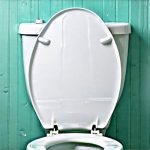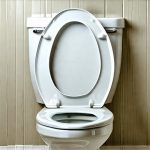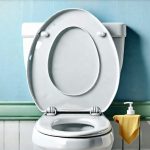The sensation is familiar to many: you’ve been diligently increasing your water intake – perhaps after exercise, during hot weather, or as part of a conscious effort to improve hydration – and suddenly, a strong urge to urinate arises, seemingly disproportionate to the amount you’ve actually consumed. This isn’t necessarily cause for alarm; it’s a common physiological response with several contributing factors. Rapid rehydration, while incredibly beneficial for overall health, can temporarily overwhelm the body’s fluid regulation systems, leading to what feels like an unexpectedly urgent need to visit the restroom. Understanding why this happens is key to managing it and appreciating the importance of consistent hydration without undue anxiety.
This isn’t merely about having a full bladder; it’s about how your body perceives and reacts to a sudden shift in fluid balance. Our kidneys, responsible for filtering waste and regulating fluids, need time to adjust when we move from dehydration – even mild – to rapid rehydration. Hormonal signals also play a role, influencing how much water the kidneys retain or excrete. The feeling of urgency can sometimes be amplified by psychological factors too; being hyper-aware of your body after intentionally increasing fluid intake might make you more attuned to normal bladder sensations. It’s crucial to differentiate between temporary post-rehydration urgency and underlying medical conditions that warrant attention, but for many, it’s a transient and manageable experience. If you are concerned about persistent issues, consider follow-up testing tips to rule out other causes.
The Role of Antidiuretic Hormone (ADH) and Kidney Function
The kidneys are remarkable organs, constantly working to maintain the delicate balance of fluids, electrolytes, and waste products in our bodies. Their efficiency is heavily influenced by Antidiuretic Hormone (ADH), also known as vasopressin. ADH is produced by the hypothalamus and released by the pituitary gland. Its primary function is to signal the kidneys to conserve water. When you’re dehydrated, ADH levels increase, prompting your kidneys to reabsorb more water back into the bloodstream, resulting in concentrated urine. Conversely, when you’re well-hydrated, ADH levels decrease, allowing your kidneys to excrete excess water as dilute urine.
Rapid rehydration throws this system into temporary disarray. Suddenly providing a large volume of fluid overwhelms the kidney’s capacity to reabsorb it quickly enough, and ADH may not immediately adjust to suppress urine production. This leads to increased urine output, and the bladder fills more rapidly than usual, triggering the sensation of urgency. Think of it like suddenly turning up the tap on a sink – it takes time for the drain to catch up! The kidneys need time to recalibrate their water reabsorption processes. It may be helpful to track gut health alongside hydration changes, as they are intrinsically linked.
Furthermore, even if ADH levels begin to rise in response to increased fluid volume, there’s a lag time between hormone release and its effect on the kidneys. This delay contributes to the feeling of urgency as your bladder continues to fill before kidney function fully adjusts. It’s also important to remember that individual responses vary; factors like age, fitness level, diet, and underlying health conditions can all influence how quickly your body adapts to rapid rehydration. If you experience concerning symptoms after eating spicy foods, investigate GERD and Rapid Heartbeat.
Understanding Bladder Capacity & Sensation
The bladder isn’t a rigid container that suddenly “fills up” and sends an alarm signal. It’s a muscular organ with remarkable elasticity, capable of expanding to hold a significant amount of urine – typically around 16-24 ounces (473-710 ml) for adults. However, the sensation of needing to urinate doesn’t necessarily correlate directly with how full your bladder is. It’s more about stretch receptors within the bladder wall that send signals to the brain as the bladder expands.
These stretch receptors are sensitive and begin firing even before the bladder reaches full capacity. This is why many people experience a feeling of urgency long before their bladder is truly overflowing. Rapid rehydration exacerbates this by quickly stretching the bladder, triggering these receptors more intensely and frequently. It’s also worth noting that our perception of bladder fullness can be influenced by psychological factors – stress, anxiety, or even simply focusing on your body’s sensations can amplify the feeling of urgency.
- The average adult bladder can comfortably hold around half a liter of urine.
- Urgency often begins when the bladder is only partially full.
- Psychological factors play a role in how we perceive bladder fullness. If you’ve experienced rapid weight loss, digestive tests can help identify any underlying issues.
The Impact of Electrolytes and Fluid Types
Water isn’t the only component influencing hydration; electrolytes – sodium, potassium, magnesium, and chloride – are essential for maintaining fluid balance within cells. When you become dehydrated, you lose not just water but also these vital electrolytes. Simply drinking large amounts of water without replenishing electrolytes can actually worsen the situation, leading to hyponatremia (low sodium levels). Hyponatremia disrupts cellular function and can contribute to a feeling of urgency as the body tries to restore electrolyte balance.
Rapid rehydration is most effective when it involves both water and electrolytes. Sports drinks containing electrolytes, or simply adding a pinch of sea salt to your water, can help mitigate this effect. The type of fluid you consume also matters. Sugary beverages like soda or juice can draw more water into the intestines, potentially delaying absorption and contributing to bloating and urgency. Clear fluids are generally preferred for rapid rehydration as they’re absorbed more quickly. Consider what you can learn from testing after changing your diet or fluid intake.
Strategies for Minimizing Post-Rehydration Urgency
While post-rehydration urgency is often harmless, there are steps you can take to minimize discomfort and manage it effectively:
- Gradual Rehydration: Instead of gulping down large amounts of water at once, sip fluids consistently over a period of time. This allows your kidneys and hormonal systems to adjust more gradually.
- Electrolyte Replenishment: Combine water with electrolyte-rich beverages or foods. Consider options like coconut water, sports drinks (in moderation), or adding a pinch of sea salt to your water.
- Mindful Hydration: Pay attention to your body’s signals and drink when you feel thirsty rather than adhering to arbitrary fluid intake goals.
- Avoid Diuretics: Limit consumption of diuretics like caffeine, alcohol, and certain teas, especially during periods of rapid rehydration. These substances increase urine production and can exacerbate urgency.
- Pelvic Floor Exercises: Strengthening your pelvic floor muscles can improve bladder control over time, although this is a long-term strategy rather than an immediate fix for post-rehydration urgency.
It’s important to remember that experiencing increased urinary frequency or urgency after rapid rehydration isn’t usually a cause for concern. It’s a normal physiological response that typically resolves on its own within a short period of time. However, if the symptoms are severe, persistent, or accompanied by other concerning signs (such as fever, pain, or blood in your urine), it is essential to consult with a healthcare professional to rule out any underlying medical conditions. If you’ve recently had a stomach virus, tracking recovery can help ease concerns. You should also review checkpoints after a scare.


















